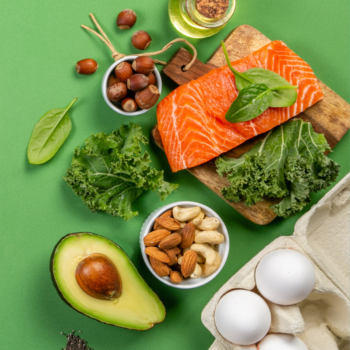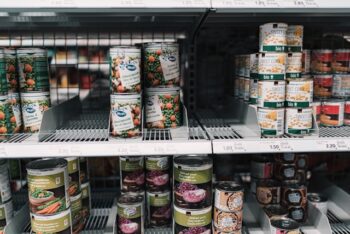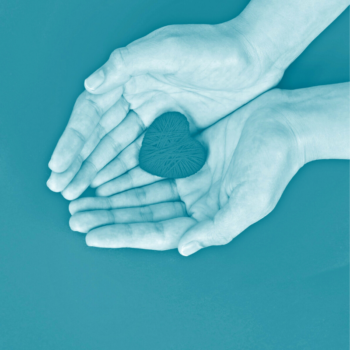Published on July 7, 2022 | Making sure your child consumes a healthy diet is an important task for all parents, but especially when your child has PKD. So, what can parents do to keep a healthy diet for their child with ARPKD?
“With any complex medical diagnosis, we want to make sure the children are getting enough of the vitamins and minerals they need to help build up the immune system and to ensure proper growth,” says Merideth Miller, R.D., C.S.P., L.D., advanced practice nutrition support dietitian at Cleveland Clinic Children’s. “If they’re not eating a variety of food or if they’re following a plan that’s more restricted than we would normally recommend, they may experience more growth restriction.”
For Lindsay Roper, of Orem, Utah, the main concern is that her 5-year-old daughter, Sadie, stays hydrated. Sadie has ARPKD and needs to drink 64 ounces of water a day to prolong her kidney function for as long as possible. “As you can probably imagine, getting a 5-year-old to drink takes up a lot of my time,” says Roper, who also has a 2ó-year-old and another child on the way.
Try these tips to help ensure your child is eating and drinking properly:
Get vitamins from food rather than supplements whenever possible.
Foods will give children other important nutrients such as fiber, phytochemicals, and antioxidants that they might not get from a multivitamin. “For children who are picky eaters, I will recommend the multivitamin but strongly urge food fist,” Miller says.
Don’t restrict food unless a doctor recommends it.
“If we restrict too soon, sometimes it can lead to food battles and poor growth,” Miller says.
Make it a game. Roper never makes drinking water into a battle of wills. She also never tries to scare Sadie by telling her that if she doesn’t drink, she may have to have a kidney transplant sooner. “I don’t want fear to be a motivator for her. I want her to feel there are steps that she can take to be as healthy as she can,” Roper says.
Instead, Roper tries to make drinking fun: She has an app on her phone where Sadie waters a plant when she has a certain amount of water. She has also used sticker charts and a chart where Sadie writes down what she’s drinking. “She is very proud that she can do that now,” Roper says.
Try rewards that aren’t sweets.
You don’t have to totally restrict sugar unless your doctor says so, but try not to fall into the trap of “if you eat this, you can have a cookie.” Instead, Roper will buy a new juice flavor, a new water bottle, or Dixie cups with different patterns. “We try to mix things up a little bit,” she says.
Roper has found a surprising perk for her and her husband if they get Sadie to properly hydrate. “When we haven’t been as good about keeping up on her fluid goals, she usually is a lot more tired and grouchy. So, besides the long-term health benefits, there’s some more immediate benefits for us as parents to help keep my child happy. That’s motivating to me when it gets hard,” she says.
When it comes to a healthy diet and nutrition, always discuss changes with your healthcare provider. They’ll help you create a plan that’s best suited to your child’s needs. To learn more about nutrition or ARPKD, check out our resource library. And you can read more articles like this in the spring issue of PKD Life.















